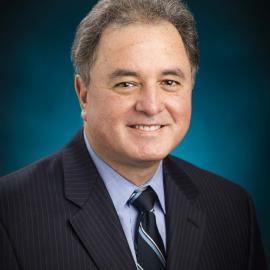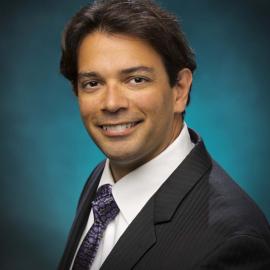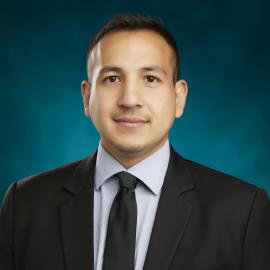Neurosurgery faculty and support staff research
The faculty at SIU Medicine’s Neurosurgery Department are dedicated to advancing the field through a broad array of research initiatives, from clinical and translational studies to cutting-edge basic science research. Our faculty’s work not only contributes to the improvement of neurosurgical techniques and patient outcomes but also helps shape the future of neurology and neurosurgery at a global scale. Collaborative by nature, our research spans various subspecialties, utilizing the resources of the Center for Clinical Research (CCR) and partnerships across institutions to drive innovation.

BRUCE FRANKEL, MD PROFESSOR AND CHEIF OF NEUROSURGERY
As a Neurosurgeon, I have focused my career, through research and patient care, on improving the treatment of those with tumors affecting the central nervous system: both brain and spine.
Despite significant improvements in diagnostic imaging and neurosurgical techniques, the current treatments for patients with brain tumors such as glioblastoma (GB) are inadequate. As such, the median survival for most patients with GB is on the order of months, even after cytoreductive surgery, radiation and chemotherapy. Fewer than 3% of GB patients are still alive at 5 years after diagnosis. For this reason exploring novel therapies for the treatment of GB through research is warranted.
Over the past 25 years, by working with multidisciplinary teams, I have studied this disease extensively in my laboratory which has been the recipient of a number of federal and private research grants including RO1 funding. Our focus has been to study mechanisms of cell death and the contribution of stem-cells to the formation and recurrence of these tumors. From these concepts we have proposed and tested novel treatments for this disease.
I am fortunate to have joined SIU School of Medicine's Division of Neurosurgery in 2023 and had the opportunity to re-establish the Glioblastoma Research Lab here at SIU to continue this important work. We have been able to recruit an outstanding glioblastoma researcher, Joe Raj, PhD from Johns Hopkins University to partner in this endeavor. Dr. Raj brings extensive experience in brain tumor nanomedicine and drug delivery to these efforts.

Dr. Espinosa’s research explores spinal surgery, with a focus on conditions such as adjacent-segment disease following lumbar fusion. His work has contributed to long-term follow-up studies that provide insight into spinal biomechanics and the optimization of surgical interventions. His research in this area is critical in developing new techniques for improving patient recovery and reducing postoperative complications.

Dr. Amin focuses on the complexities of neuro-oncology, with particular attention to innovative treatments for brain tumors. His research often investigates novel therapeutic approaches aimed at improving surgical outcomes and survival rates in patients with aggressive brain malignancies. Dr. Amin collaborates with multidisciplinary teams to pioneer new strategies in neurosurgical oncology and improve treatment pathways for these challenging conditions.

Dr. Mantovani specializes in the functional neurosurgery domain, with a primary focus on Parkinson’s disease and deep brain stimulation (DBS). Her research seeks to refine DBS techniques by studying the effects of dorsal versus ventral stimulation on Parkinsonian tremors. Dr. Mantovani’s work is pivotal in improving the quality of life for patients with movement disorders and advancing the precision of neurosurgical interventions in functional neurosurgery.
Research Support Team
The Research Support Team at SIU Medicine’s Neurosurgery Department plays a crucial role in driving the success of our clinical and translational research efforts. This dedicated team of professionals provides comprehensive assistance to faculty, residents, and research investigators throughout the entire research process, from study design to publication. Their expertise ensures that all research initiatives are conducted efficiently, ethically, and in compliance with regulatory standards.
Our team offers a wide range of services, including protocol development, grant writing, data collection and analysis, regulatory submission and compliance, and project management. They also collaborate closely with the Center for Clinical Research (CCR), which provides additional resources and infrastructure to facilitate high-quality research. With a focus on streamlining the research process, the Research Support Team enables investigators to focus on the scientific and clinical aspects of their work, while ensuring smooth project execution and adherence to best practices in research.
Whether supporting investigator-initiated studies or industry-sponsored clinical trials,
the Research Support Team is integral to advancing the department’s mission of improving patient care through groundbreaking neurosurgical research.




